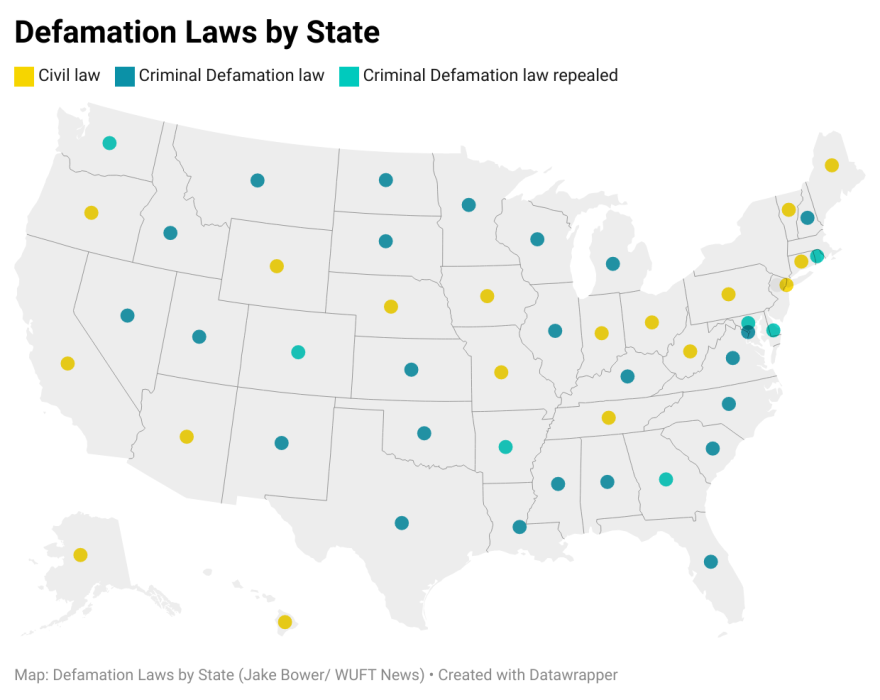Florida Republican lawmakers are hoping to pass a bill that could eventually overturn several precedents set by the Supreme Court on First Amendment rights.
The proposed House Bill 991, officially titled Defamation, False Light and Unauthorized Publication of Name or Likenesses, would make it easier to sue news outlets for defamation by lowering the requirement to prove actual malice, which has protected journalists since the U.S. Supreme Court's landmark 1964 decision in New York Times v. Sullivan.
In New York Times v. Sullivan, the Supreme Court ruled that potentially harmful information about a public official is protected under the First Amendment and can be published to encourage investigation into government politics.
Since 1964, cases of defamation against journalists must show that a statement was made with “actual malice,” defined as "with knowledge that it was false or reckless disregard of whether it was false or not."
HB 991, proposed by Rep. Alex Andrade, R-Pensacola, hopes to change this by lowering the requirement for actual malice, so public figures can sue the media more easily.
A “public figure does not need to show actual malice to prevail in defamation action,” according to the bill’s literature on the Florida House of Representatives website.
Andrade didn’t respond in time for comment.
Journalists' privilege gives journalists the right not to be forced to reveal information or confidential sources for stories that are of importance to the public. HB 991 would presume that any statement made by an anonymous source is false, essentially eliminating this privilege for journalists as neutral watchdogs.
“Anonymous sources are a bedrock of higher-level political journalism,” said Aidan Bush, a University of Florida journalism student.
The bill will affect journalists around the state, including those looking to cover the government. Jack Meyer, a 20-year-old UF journalism student said he believes the bill is a step backward for honest media coverage in Florida.
“While journalists should be held accountable and maintain their integrity, the bill goes too far in doing so,” he said.
Emily Harder, a 20-year-old University of Central Florida journalism student, said she fears that the bill will be used incorrectly. She said she thinks journalists should be held accountable for wrongdoings but shouldn’t have to worry about defamation when it comes to government politics.
“I feel like most people get in trouble for writing ‘preferred narratives,’” she said.
Florida is one of 24 states with criminal defamation laws; punishments for criminal defamation can reach up to one year in jail. While other states have civil defamation laws, the precedent potentially set by Gov. DeSantis will likely influence how other states handle punishment for defamation cases moving forward.
HB 991 is currently in the Judiciary Committee in the Florida House.
“Legislation and policies like these make me worry about the future of the media in my home state,” Meyer said.

